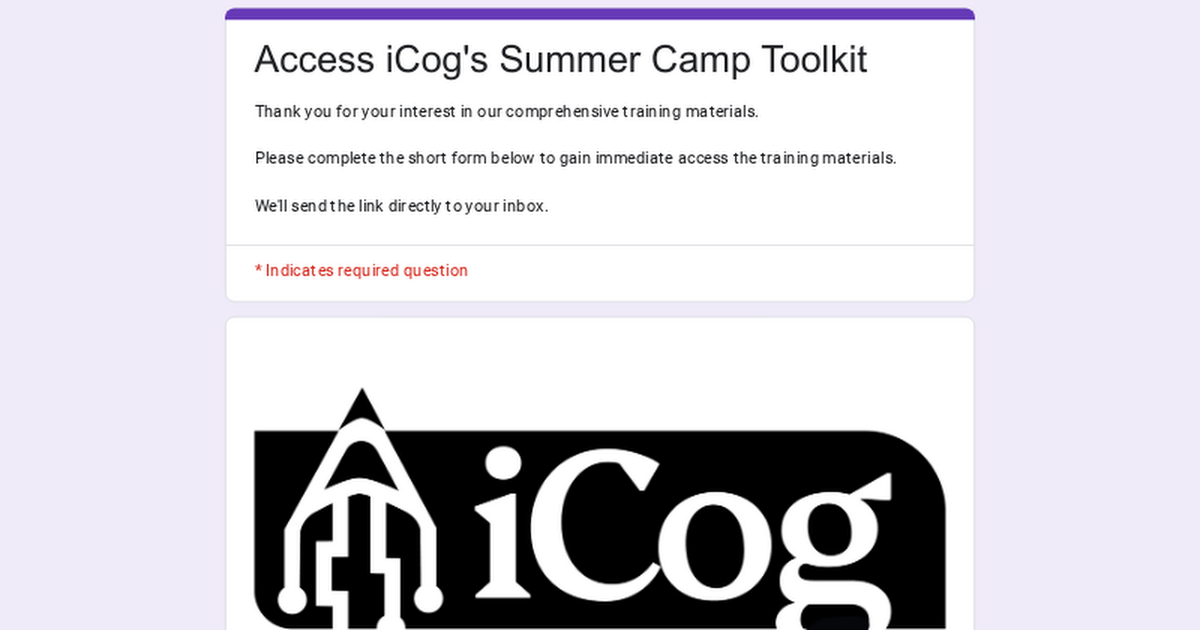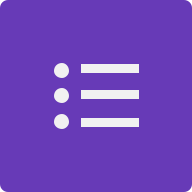Nine Summers of Code — Now for Everyone
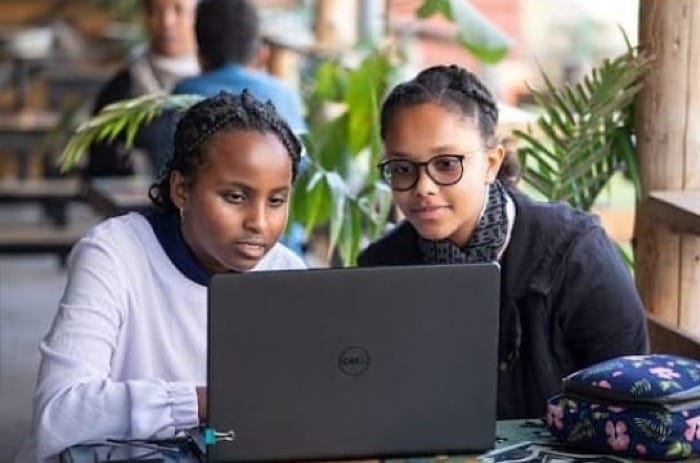
When Hibist walked into the iCog summer coding camp for the first time, she had never written a single line of code. She was a teenager, curious but unsure of what to expect. By the end of her first week, she had built her first working program and, more importantly, discovered a whole new way of thinking.
“It’s what first got me interested in tech,” she recalls. “More than that, it changed the way I think. I truly believe everyone should learn coding at some point in their life.”
Hibist’s story is just one of thousands shaped by the camp over its nine-year run. What began in 2016 as a small experiment in Addis Ababa grew into a nationwide program that reached students in Adama, Ambo, Bahir Dar, Hawassa, Jimma, Harar, Sebeta, Weliso, Debre Zeit, Jigjiga, and Kombolcha and even drew participants from abroad, from Vienna and Pretoria to U.S. cities.
From the start, the goal was clear: create a space where young people could explore technology not just as consumers, but as creators. Over the years, learners aged 8–18 moved from beginner-friendly tools like Scratch to creating websites, apps, games, and AI-powered tools using Python and JavaScript. Each summer, the curriculum evolved into a structured pathway for three age groups — Code Explorers (8–10), Code Warriors (11–14), and Code Pioneers (15–18) — with beginner and advanced tracks, ensuring students could grow their skills year after year.
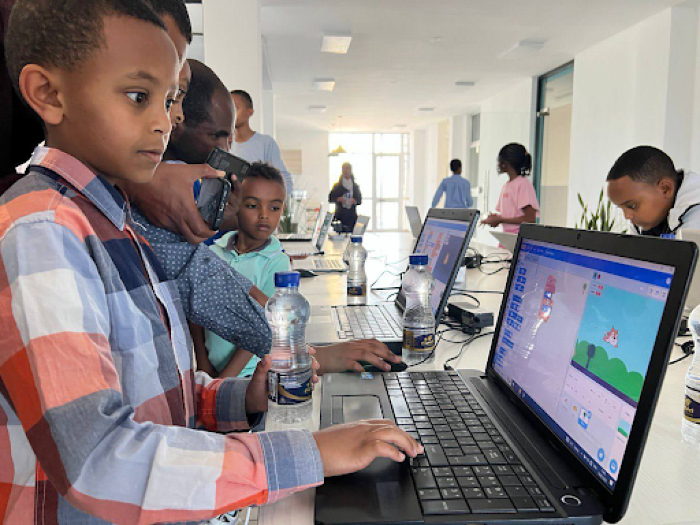
The learning environment was hands-on and practical. Lessons were built around projects, from games and animations to interactive apps and tools. By combining project-based learning with gamification, students stayed engaged and motivated, “leveling up” as they mastered new skills. This approach didn’t just teach code it taught problem-solving, creativity, and resilience.
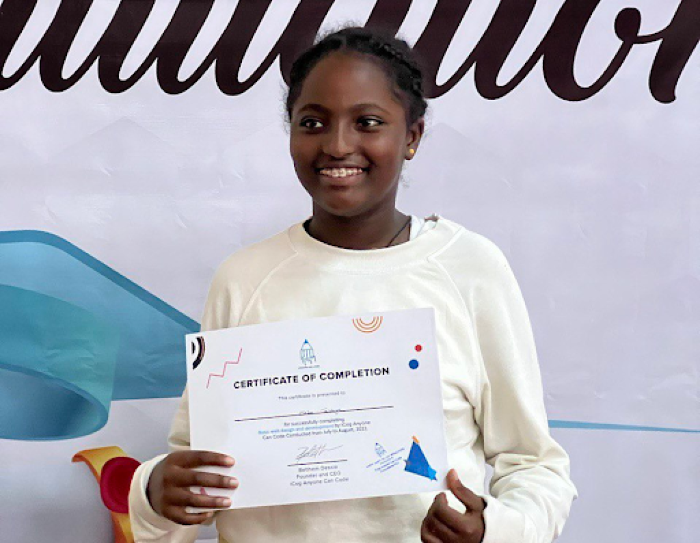
Parents witnessed the difference at home.
“We had an amazing experience. The summer camp played a big role in shaping her academic journey; it laid a strong foundation, and now she’s successfully learning advanced programming. It’s unfortunate to hear that the camp won’t be continuing.” – Serkalem, parent of a participant in 2022 and 2023
“Our kids had an amazing time at the summer camp. They learned so much, and their interest in computers has grown even more since the classes ended.” – Mekda, parent of participants in 2021 and 2022
“The summer camp experience was excellent. My child showed significant improvement in behavior after attending, and overall, it was a positive and rewarding experience for us.” – Mesert, parent of a participant in 2021
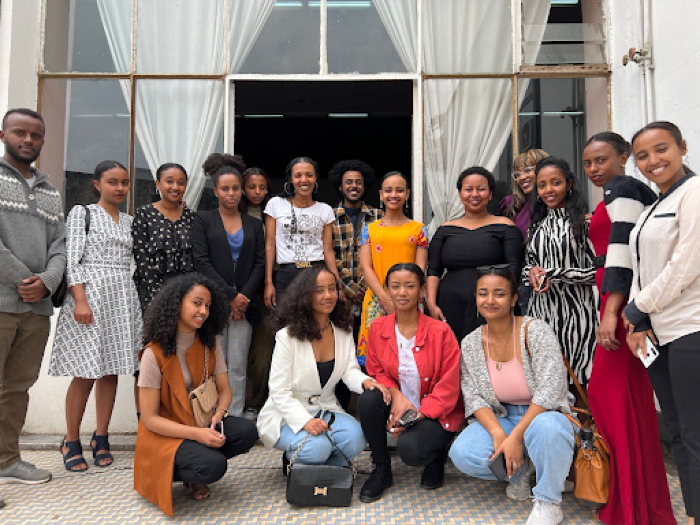
The camp also shaped the lives of its trainers, many of them university students or recent graduates who brought technical expertise and a passion for teaching. Some, like Hibist, came full circle, returning years later to guide new students. Trainers weren’t just instructors; they were mentors, helping young learners navigate both technical challenges and the mindset needed to approach them.

Behind the scenes, delivering the program each year required careful coordination, securing venues, recruiting and training instructors, and continually refining the curriculum. Partnerships with both local and international organizations played a vital role, enabling the camp to expand to new cities and reach more students each summer.
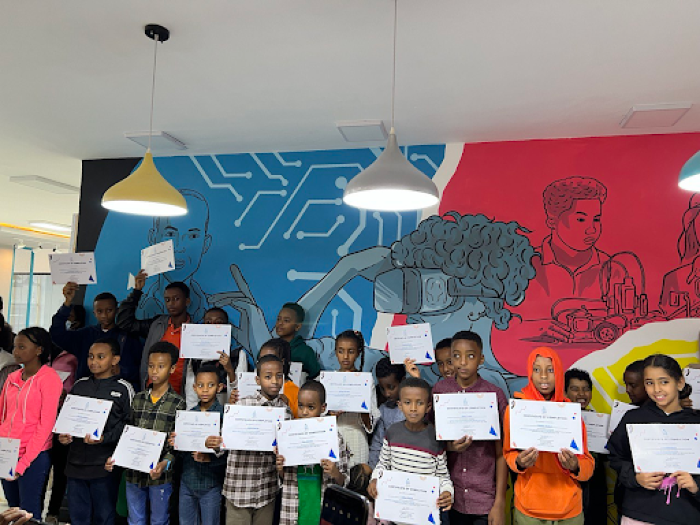
Now, as the camp concludes, its resources are already finding new life. iCog has open-sourced its complete set of materials course outlines by age group, trainer guides, sample projects, and lessons learned, and has shared them with more than 140 organizations and individuals who are running their own summer camps or teaching children at home. The work will continue in many different forms, shaped by new contexts and new communities, but built on the same belief that sparked the first camp in 2016: that when young people have the tools to create with technology, they open doors to possibilities far beyond the classroom.
You can register and access the full materials here:
